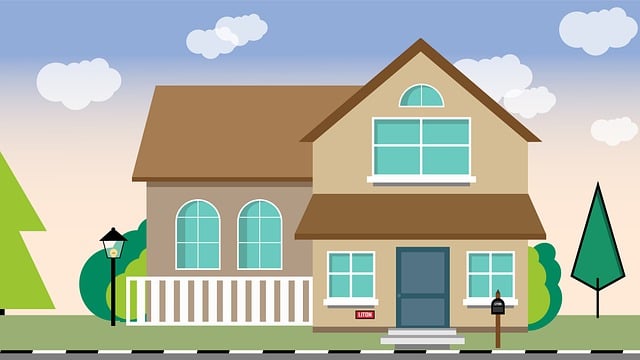House sitting is a vital service within home care that enables seniors and individuals with mobility issues to maintain their independence and dignity while aging in place. It involves a caregiver living temporarily in the client's home to monitor health, manage household tasks, respond to emergencies, and provide personalized companionship. This service not only supports the individual's quality of life but also offers security benefits by deterring theft, vandalism, and property damage. It is a comprehensive solution that encompasses both property maintenance and elder care, including medication reminders, meal preparation, and assistance with errands or appointments. For homeowners, it ensures their homes are well-maintained and secure in their absence, with a trusted sitter who understands the property's systems and follows established communication protocols for emergencies. Successful house sitting requires knowledge of the home's infrastructure, proactive maintenance, a detailed inventory of valuables, and trustworthy caretakers, often backed by references or insurance. It also involves adherence to local guidelines to preserve the property and maintain a comfortable living environment upon the owner's return. House sitting is an indispensable service for those seeking reliable home care and property upkeep solutions.
Home care services encompass a spectrum of support, enabling individuals to maintain independence and comfort in their own homes. Among these services, house sitting emerges as a pivotal aspect, offering peace of mind for elderly residents and absentee homeowners alike. This article delves into the nuances of professional house sitting within home care, highlighting its multifaceted benefits and the critical considerations for successful arrangements. Join us as we explore how house sitting can enhance safety, security, and comfort in one’s home environment, ensuring a seamless integration of support and familiarity.
- Understanding the Role of House Sitting in Professional Home Care Services
- The Benefits of Engaging House Sitting for Elderly and Absentee Homeowners
- Key Considerations and Best Practices for Effective House Sitting Arrangements
Understanding the Role of House Sitting in Professional Home Care Services

House sitting plays a pivotal role within the scope of professional home care services, providing a continuous presence in the homes of those requiring assistance. This service involves caregivers temporarily residing in a client’s home to monitor their well-being, manage household tasks, and ensure a safe and comfortable living environment. For seniors or individuals with mobility issues who prefer to age in place, house sitting offers peace of mind by having a trusted individual available to address needs immediately. It allows for a more personalized approach to care, as the sitter can respond to emergencies, coordinate with other healthcare professionals, and provide companionship tailored to the client’s preferences and routines. Additionally, house sitting facilitates a smooth transition between different levels of care, ensuring that the individual receives consistent support as their needs evolve. This level of oversight and attentiveness is crucial for maintaining the independence and dignity of those in need, making it an integral aspect of comprehensive home care solutions.
The Benefits of Engaging House Sitting for Elderly and Absentee Homeowners

House sitting for elderly individuals and absentee homeowners presents a multitude of benefits, chief among them being the assurance of safety and security for their homes. When a trusted house sitter occupies a property, it deters potential intruders, safeguarding the premises from theft or vandalism. This presence also ensures that utilities are managed properly to prevent issues like water damage from burst pipes due to extreme temperatures when left unattended. Additionally, house sitting can provide elderly homeowners with the peace of mind that comes from knowing their treasured belongings and cherished home environment are being looked after in their absence. For absentee owners, professional house sitting services act as a local presence, handling routine maintenance tasks, collecting mail to prevent mail theft, and maintaining the property’s landscaping, which can significantly reduce the risks of burglary or property neglect. Furthermore, house sitters can be tasked with providing companionship and support for elderly residents, offering a layer of personal care that goes beyond traditional security measures. This can include medication reminders, preparing meals, and even accompanying them on errands or medical appointments. Such attentive care not only enhances the safety and well-being of the elderly but also preserves their independence and quality of life within familiar surroundings.
Key Considerations and Best Practices for Effective House Sitting Arrangements

When considering house sitting as an arrangement, it’s crucial to evaluate the responsibilities and trust involved. Homeowners seeking peace of mind must identify a trustworthy individual or service capable of maintaining the home’s security, upholding routines, and managing any urgent tasks that may arise during their absence. Best practices for effective house sitting include a thorough understanding of the property’s systems, such as heating, cooling, and security, ensuring they are operated correctly. It’s also important to establish clear communication channels for emergencies or questions, allowing the house sitter to act promptly when necessary. Regular maintenance checks can prevent minor issues from escalating into major problems, safeguarding both the property and its contents. Additionally, the house sitter should be provided with a detailed inventory of valuables, along with their locations within the home, to ensure proper care is taken during the tenure. Trustworthy references and a bond or insurance policy can further enhance the reliability of the house sitter. Prospective sitters should also be familiar with any neighborhood-specific instructions or nuances that could impact their duties, ensuring a seamless living environment upon the homeowner’s return. House sitting services should prioritize adaptability and discretion to ensure the home remains a secure and comfortable space throughout the owner’s absence.
House sitting emerges as a pivotal element in the spectrum of professional home care services, offering tangible benefits for elderly individuals and those absentee homeowners who require an attentive presence in their absence. By ensuring the safety, security, and maintenance of homes, house sitters provide peace of mind and safeguard property integrity. Prospective clients are encouraged to carefully select reputable service providers and establish clear, tailored agreements that align with their unique needs. With the right considerations and best practices in place, house sitting can be a dependable solution for those seeking a seamless integration of home maintenance and care.
